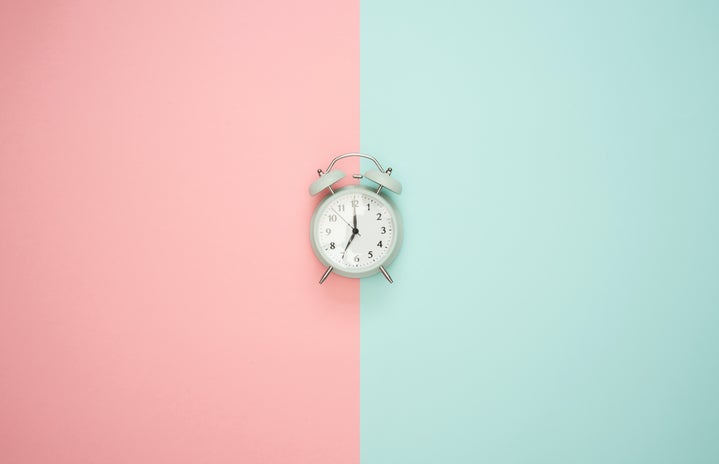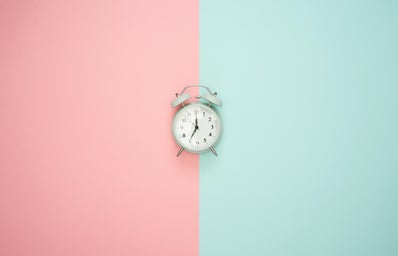My grades began improving when I started learning about when my body functions best, and when I seem to struggle. Understanding the schedule that my body and brain follow and using it to work when I am most motivated and focused was game-changing. I found that I’m most focused, creative, and attentive in the morning after breakfast and before lunch; my best essay writing and work on big projects occur during this time. I need a break for lunch in the early afternoon to break up my day and reenergize. Following this, the early afternoon is my best time for memorization and review. On days when there are no pressing assignments or upcoming tests, I don’t often do much work after dinner, as I don’t retain much information and find it hard to focus. When it comes to school, working smarter is all about efficiency and maximizing your productivity when you can do your best learning. Following a routine schedule when it comes to food, sleep, and schoolwork is as beneficial as it is said to be.
For most people, there is a period of increased energy leading up to lunchtime, a natural dip around 3 pm, and then an increase in energy until around 6 pm, with a subsequent decrease until bedtime. This is a very generalized energetic pattern related to the average person’s Circadian Rhythm, but everyone varies slightly. This means that if you need to get some serious learning or studying done, the best times generally would be slightly before or around lunchtime, and then in the mid to late afternoon. Learning your clock means becoming more attuned with your body and when focusing seems harder or easier to you. There are some broader ways to define patterns in energy and productivity, such as those based on sleep schedules:
For morning people, like myself, the most productive times of the day can be near lunchtime. While many people sleep in, we morning people are getting the bulk of our work done for the day, and this is consistent with Circadian Rhythm productivity if you are someone who goes to bed earlier. If you find it difficult to begin schoolwork after dinner, then you are not alone. Most of our biological clocks are not meant for that level of focus and concentration in the later hours of the night. However, there are definitely times when late-night studying is not optional, and in these situations, it’s important to remember that you must reward your body for working when it isn’t at its prime energy level. You can reward yourself by walking around, stretching to stimulate increased blood flow, increasing your water intake, or snacking for quick energy boosts. My favourite study trick for nighttime focus is to set a timer – 25 minutes of focused work followed by a 5-minute break, where I get up and move around or have a snack.
For later risers, sleeping in can be key to having enough energy to function later on in the day, as bedtimes are often later into the night. For many people, it’s quite hard to wake up and jump right into work; a slower start to the day can be more beneficial to get their brain and body on the same page. Following this kind of sleep-wake cycle means the most productive times of day for schoolwork would be in the early afternoon until 3 pm, and then again right after dinner. Meals can often increase energy and focus, so if you are starting to feel tired or like you have read the same sentence over again it might just be time for a snack break. For later risers, attempting to complete study or memorization tasks earlier in the day may require more energy and go against their biological needs. Learning what kind of sleep-wake-productivity pattern you relate to most can be a great start to maximizing your schoolwork day. Pay attention to when you feel the most energized and ask yourself: when did you last eat, how much sleep did you get, and how long have you been working? If you can control your schedule at least a little bit, hold yourself accountable to your clock, and notice when you are making work harder than it needs to be by fighting your biological timeline.

